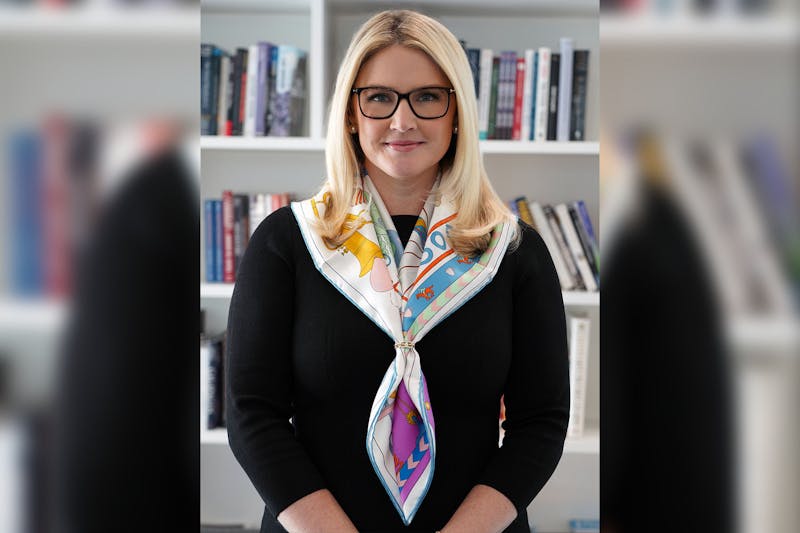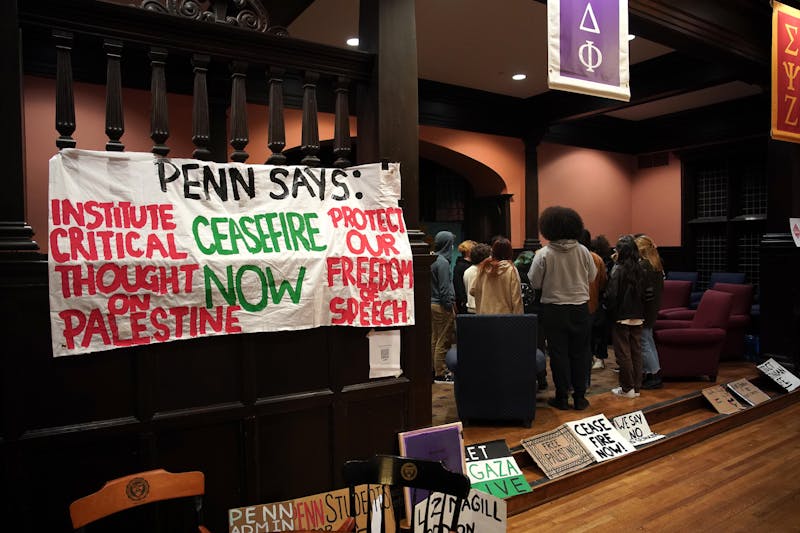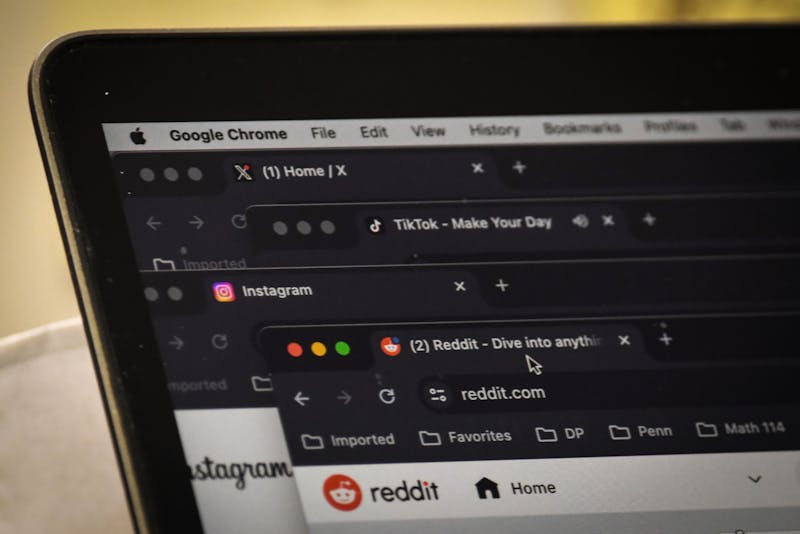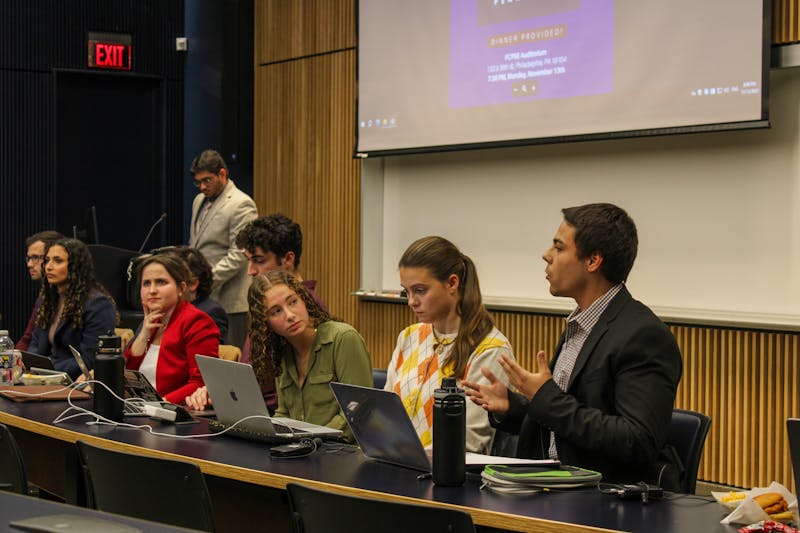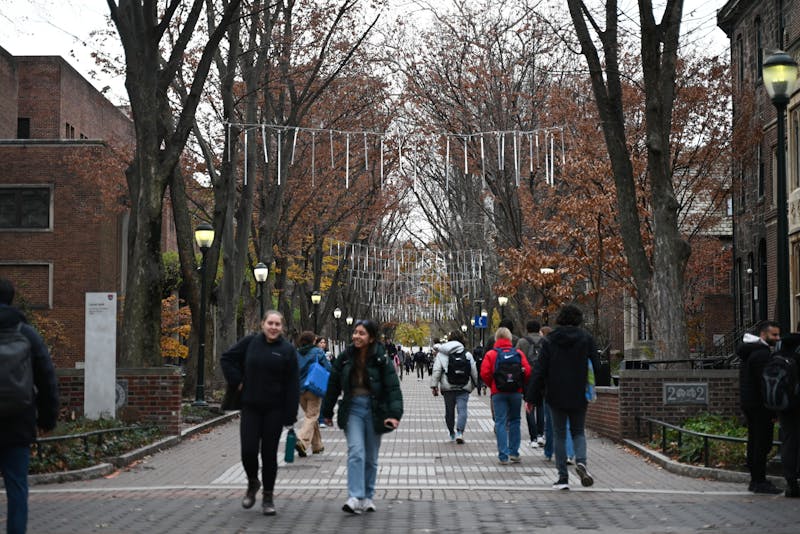
The Penn Journal of International Law and Penn Slavic+ Club hosted the journal’s 2024 symposium examining the legal issues raised by the conflict in Ukraine.
The full-day conference, entitled “The Future of Ukraine and International Law,” featured experts in international affairs from around the United States, as well as legal practitioners and public officials based in Eastern Europe. The event, which took place on Jan. 26 at the University of Pennsylvania Carey Law School, consisted of four panels focused on trade law, the prosecution of war crimes, investment law, and the international legal order.
The Journal of International Law publishes scholarship on issues relating to general international law, with a focus on business and economics. Past symposia have centered on the future of incarceration, presidential power, and international space law.
The 2024 conference was a collaboration with the Slavic+ Club. The club, which was founded last year, celebrates Slavic culture at Penn Carey Law and aims to raise visibility and foster legal conversations on the ongoing war in Ukraine.
The symposium’s first panel was titled "Sanctions, Trade, and International Economic Law." Speakers included Director for International Economics on the White House National Security Council Peter Harrell and Csongor István Nagy, a law professor at the University of Szged in Hungary.
The panel also featured Yuliya Ziskina, a legal advisor for Razom for Ukraine, an organization founded in 2014 to support democracy and prosperity in Ukraine.
The speakers discussed the effectiveness of international sanctions in hindering Russian capabilities in the ongoing conflict.
“The United States has begun to use export controls to make it more difficult for Russia to build weapons and build an industrial base,” Harrell said. “There have also been sanctions launched against specific Russian figures such as Putin. If you view the objective as Russia’s ability to wage war, the current plan in place has been somewhat successful.”
Ziskina stated that while the Biden administration has portrayed economic sanctions as a “cure-all” solution against Russia’s political hegemony, they are a historically slow process and cannot provide immediate relief for Ukraine. Although Ziskina and Nagy agreed that sanctions could be employed as a powerful bargaining tool, they reiterated the need for greater international discussion on which sanctions to levy.
The second panel evaluated the ramifications of the conflict in Ukraine on the current international justice system and future court reforms. It convened Professor Emeritus of history and law at Elon University David Crowe, Penn State Dickinson Law Professor Dermot Groome, Associate Professor of criminal law at the University of Michigan Kseniya Yurtayeva, and former Prosecutor General of the Czech Republic Pavel Zeman.
Zeman emphasized the need for “digital evidence” to ensure justice on an international stage.
“In my opinion, this will have the greatest impact on any future international trials,” Zeman said. “Ultimately, we need to figure out the best way not only to guarantee international justice but also international safety.”
The third and fourth panels focused on assessing shifts within the international legal order and mechanisms for dispute resolution. The speakers — including Ukrainian law firm partner Olena Perepelynska and member of Ukrainian Parliament Oleksiy Goncharenko — examined the war’s degradation of pre-existing legal frameworks and global institutions.
The panelists emphasized the failure of current diplomatic interventions to mitigate the crisis, underscoring the challenge of enforcing international law in the face of powerful actors who abuse their political power. They expressed their worry that the inability to mediate the ongoing war could establish dangerous precedents for future international conflicts.
The keynote speaker of the event, Managing Partner of the RULG-Ukrainian Legal Group Irina Paliashvili, echoed her colleagues' concerns when discussing Russia’s violation of the fundamental principles of sovereignty and territorial integrity protected under international law.
“Because international institutions are so slow and Russia basically ignores them, there was an injunction from the International Court of Justice demanding that Russia stop its war of aggression more than a year ago,” Paliashvilli said. “Russia ignored it, but nevertheless Ukraine continues to follow international procedure because it believes in international law. It’s the responsibility of international communities to make sure legal principles are protected.”
Throughout the event, conference leaders presented the artwork of Ukrainian artists such as Jenya Polosina, Oleg Gryshshenko, and Oksana Drachkovska to reflect the war's personal impact on Ukrainian civilians.
February 24 will mark two years since Russia’s full scale invasion of Ukraine. Paliashvilli emphasized the importance of reforms in international legal mechanisms to allay the war’s national devastation.
“I think one of the main tasks for all international lawyers is to respond to the conflict because, if we don’t, we will no longer have order; there will be no international law,” Paliashvilli said. “The topic of the symposium is the future of Ukraine and international law but, to preserve international law, we have to make sure that the future still exists.”
The Daily Pennsylvanian is an independent, student-run newspaper. Please consider making a donation to support the coverage that shapes the University. Your generosity ensures a future of strong journalism at Penn.
Donate







